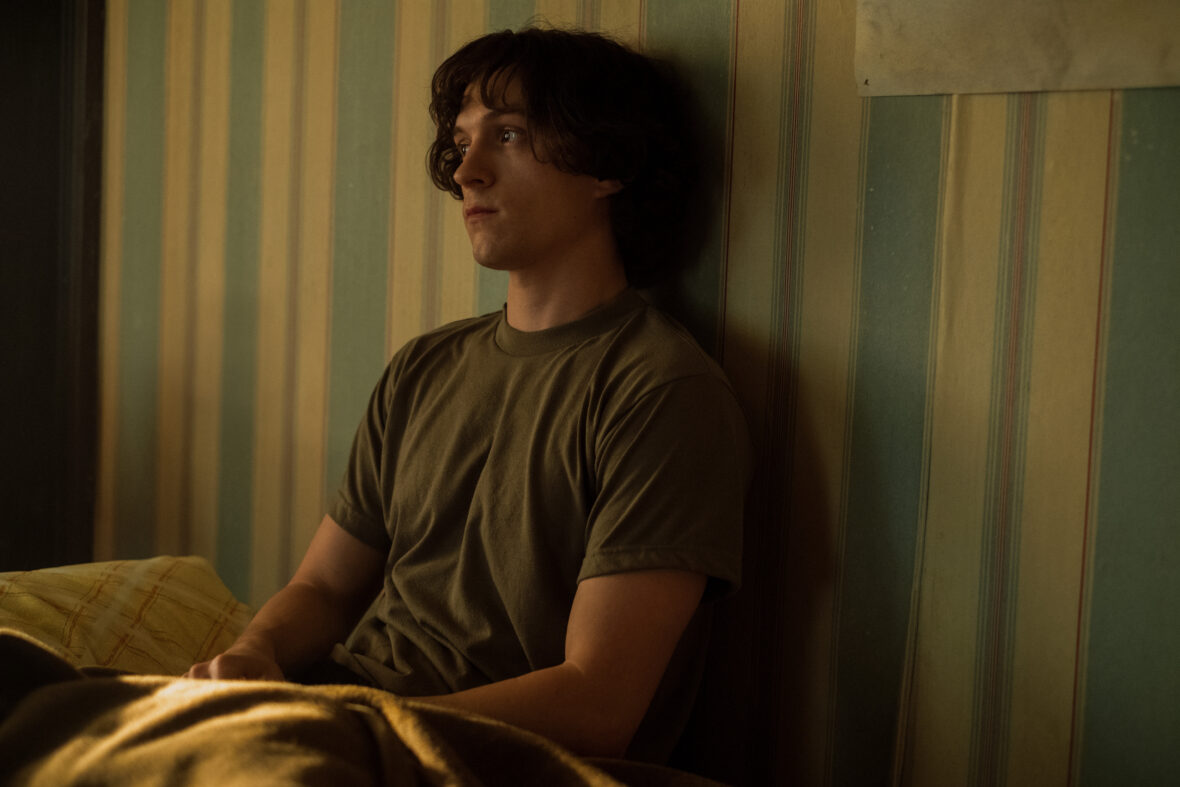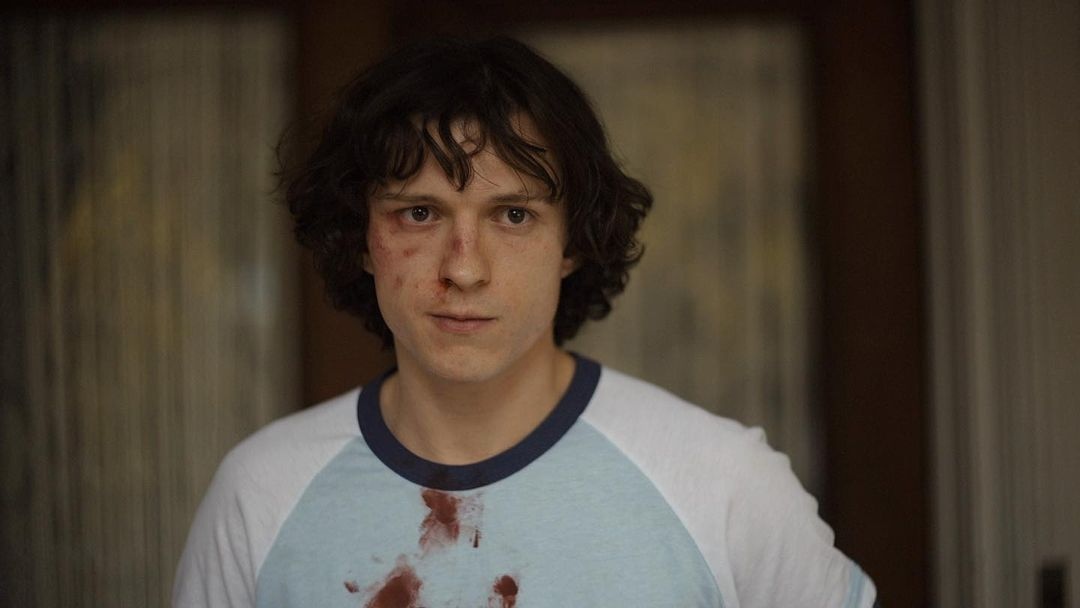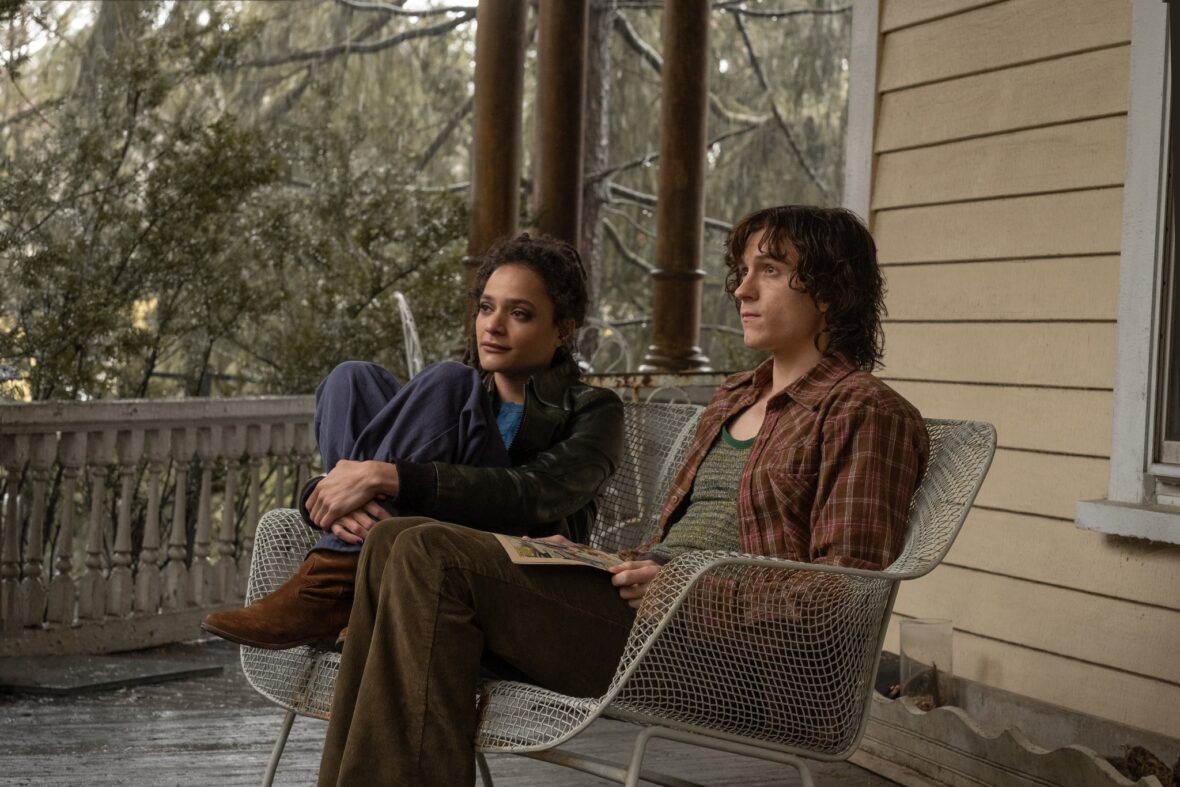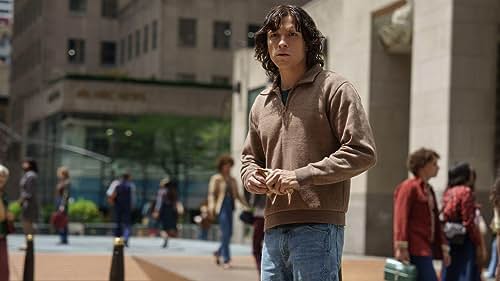
The Crowded Room provides a paradox in addition to its complexities, subversions, and some very obvious red herrings. If you are familiar with “The Minds of Billy Milligan” and are aware that the Daniel Keyes book served as the inspiration for this 10-part Apple series, you will be able to appreciate how deliciously roundabout this adaptation is without, regrettably, falling victim to writer Akiva Goldsman’s cunning storytelling technique. Even if you’ll want to go there if you don’t know the book, you won’t be able to recognize in real-time how skillfully you’re being guided from point A to Z. Call it a win-win situation with compromises in this The Crowded Room review.
However, let’s put Billy Milligan out of our minds for the time being (or forever) and focus on Tom Holland. The versatility he gives to Danny Sullivan, whom we meet in 1979 as he prepares to murder at Rockefeller Center, may surprise viewers who only know him from his several Spider-Man flicks in this The Crowded Room review. Ariana (Sasha Lane) prods him on as he chases their faceless target across the packed Manhattan plaza; Danny freezes, Ariana takes the pistol and fires, wounding two bystanders; Danny then picks up the weapon and is captured in the classic mistake of the innocent man.
The Premise
Holland portrays Danny Sullivan, a young man detained in 1979 for a gunshot incident that occurred in a busy New York venue in this The Crowded Room review. Police bring in a specialist, Rya Goodman (Amanda Seyfried, who just won a well-deserved limited-series Emmy for “The Dropout“), to question him since they suspect Danny of killing his missing partner.
Without giving away too much of the plot, the action is carried out through a combination of Danny and Rya’s prison conversations and flashbacks, with Rya showing an unusual interest in Danny’s past, particularly his interactions with his mother (Emmy Rossum) and stepfather (Will Chase) in this The Crowded Room review.
Check Out: Here Are Our Dazzling Barbie Movie First Impressions
Where’s the Hook?

Goldsman, who has solo or joint credit on each of the 10 episodes of the series, wrote the majority of the scripts. The episode The Crowded Room presents Danny’s mental illness, formerly known as multiple personality disorder, as a bombshell that should be kept a secret for maximum impact. Not simply because the huge “surprise” arrives with a thud, but also because of the choice, the program is severely damaged in this The Crowded Room review.
The lack of a hook caused by The Crowded Room‘s ambiguity over Danny’s true nature is one that it declines to replace with an effective pitch. Viewers who have enough background information will only be bored. A pilot that focuses an hour on a high schooler in New York who feels uneasy and out of place would perplex those who are unfamiliar with it.
Seyfried is woefully underutilized as Danny’s interlocutor after her astounding performance as Elizabeth Holmes in “The Dropout.” Her role, as a professor vying for tenure while juggling divorce and being a single mother, could have been the basis for The Crowded Room‘s structure. In truth, once Goldsman abandons his pretense and redirects his attention to Danny’s defense, led by Rya, the tempo does increase significantly in this The Crowded Room review.
But that change only happens after the halfway point of the series. (The seventh episode introduces the visual metaphor that serves as the show’s name.) Prior to that, The Crowded Room lingers on Danny’s account of his life for an extended period of time when it becomes clear what is truly happening.
Also Read: The Bear Review: New Season Sparks Fanfare
Danny’s Backstory

Danny is raised by a single, hardworking mother and a wicked stepfather while grieving the loss of his twin. Danny meets guardian angels along the way, including Jonny (Levon Hawke), his best friend from high school who pressures him into drug dealing, Yitzhak (Lior Raz), an Israeli landowner who offers Danny a place to stay when things at home get out of hand, and Jack (Jason Isaacs), a dapper Brit who vows to put Danny in touch with his biological father.
By the time Jack arrives, it is obvious Danny’s story is intended to defy belief in this The Crowded Room review. Still, The Crowded Room wastes time by giving Ariana her own storyline as a pointless red herring or by having Jonny save Danny from a neighborhood mobster in a very absurd sequence involving coerced fellatio in exchange for a gun.
His responses are interspersed with flashbacks to events that contradict what he is saying and allude to a more sinister story at play. Even without them, there are a number of things that seem odd to us in this The Crowded Room review. Why is this quiet young man being held accountable for numerous horrible crimes? Why is a professor interviewing him? Why do the numbers keep adding up for him and so far for us but not for her? Why is it that even the most realistic scenes have a small air of unreality?
It’s done well to convey this general discomfort and bewilderment. But it lasts a very, very long time. The Crowded Room is a 10-episode series, and before the whole mystery is revealed, the evasiveness, hints—such as a lost twin brother, abuse of many kinds, and latent potential for violence—and drip-feeding of information seem intentionally deliberate in this The Crowded Room review.
A Lethargic Plot

Rya’s interest in Danny might launch her career. Why, you inquire? This is Danny’s mystery, and it won’t become evident for the first few episodes—basically the first five—even as the plot twists and turns, revealing new levels as it goes in this The Crowded Room review. The early years of Danny are described, initially in broad strokes, then in increasing detail—exactly as if he were in therapy. Ms. Seyfried delivers a less flashy performance here, but one that is full of paradoxes and tensions. Rya’s various epiphanies—about Danny, her relationship with her own small boy, and her professional ethics—can seep into her consciousness thanks to Ms. Seyfried’s talent.
Here, the suggestion for The Crowded Room is to persevere. In the beginning, it seems aimless—not uncharmingly so, but without a clear goal. It takes a lot of effort and patience to give a carrot—that all comes together in episode 6—but persevere in this The Crowded Room review. The performances are, at worst, enthralling throughout. As the disgruntled Candy, Ms. Rossum nearly disappears, and Jason Isaacs as Jack, an old friend of Danny’s long-missing father, does likewise in this The Crowded Room review. (Perhaps from “I’m All Right Jack,” Mr. Isaacs appears to be impersonating Peter Sellers.)
Zachary Golinger, a talented young actor, portrays both Adam, Danny’s twin, whose whereabouts have been a mystery for the entire series, and Danny, a little boy. Excellent performance by Emma Laird as Danny’s high school sweetheart, Isabel. She is tough to get. But The Crowded Room does too. Both succeed in seducing.
Check Out: Oppenheimer Review: a Bomb That Doesn’t Detonate
The Crowded Room Review: Final Thoughts

At the very least, delaying the crucial twist delays the start of the showy, award-bait performance one connects with ideas like The Crowded Room. When it finally appears, with Holland switching between accents and physical effects, the change is less convincing and more like a compilation reel from a celebrity trying to break free from the Marvel fold in this The Crowded Room review.
Holland plans to take a year off from acting because the filming was so demanding. However, The Crowded Room lengthens its simpler second half as well, going over entire scenes like Rya exploring Danny’s house. Although they are supposed to be seen through fresh eyes, their context hasn’t changed enough to warrant going back to see them in this The Crowded Room review.
In addition to being a platform for Holland, The Crowded Room tries to present itself as a plea for compassion for people who are dealing with mental illness. The scripts force modern wisdom—ideas that are glaringly out of date—about the value of treatment and the flaws in the medical system into the narrative in this The Crowded Room review.
There is even a warning about Danny’s white privilege in comparison to his fellow prisoners of color. This warning is more offensive because it is spoken by a prosecutor in the 1980s in New York. The Crowded Room uses Danny’s diagnosis as a dramatic reveal while also trying to make a point about not sensationalizing a disorder as contentious as DID in this The Crowded Room review.
The Crowded Room wastes a lot of money on fruitless endeavors. The pilot’s director, Kornél Mundruczó, has the opportunity to lavishly portray Danny’s surroundings, and an entire episode is centered around a showy, unquestionably expensive Pink Floyd sync in this The Crowded Room review. But The Crowded Room doesn’t need it in excess. A considerably shorter, even movie-length, version of the plot would require much less goodwill to complete in exchange for a little reward. Instead, we are given a drawn-out portrayal of a mind that is anything but attractive.
More About:TV Show Reviews


